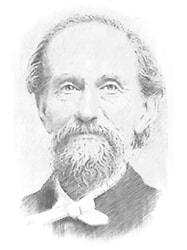II Corinthians 12
 Meister Eckhart
Meister Eckhart
“The more you are able to completely withdraw all your powers and forget all things―along with whatever images they have left in you―the farther you will travel away from created things and their images, and the closer and more receptive you will be to this birth. Were you to forget everything completely and be unaware of them, you would lose even the awareness of your own body, just as it occurred with St. Paul when he said, ". . . whether in the body, I cannot tell; or whether out of the body, I cannot tell: God knoweth. . ." (2 Corinthians 12:2)”
― Meister Eckhart, The Kingdom of Heaven Within You, Vol 2: The Teachings of Meister Eckhart
― Meister Eckhart, The Kingdom of Heaven Within You, Vol 2: The Teachings of Meister Eckhart
II Corinthians 12:6:
6 For though I might desire to boast, I will not be a fool; for I will speak the truth. But I refrain, lest anyone should think of me above what he sees me to be or hears from me.
6 For though I might desire to boast, I will not be a fool; for I will speak the truth. But I refrain, lest anyone should think of me above what he sees me to be or hears from me.
 Andrew Murray
Andrew Murray
“The Christian often tries to forget his weakness; God wants us to remember it, to feel it deeply. The Christian wants to conquer his weakness and to be freed from it; God wants us to rest and even rejoice in it. The Christian mourns over his weakness; Christ teaches His servant to say, 'I take pleasure in infirmities. Most gladly ...will I...glory in my infirmities' (2 Cor. 12:9)' The Christian thinks his weaknesses are his greatest hindrance in the life and service of God; God tells us that it is the secret of strength and success. It is our weakness, heartily accepted and continually realized, that gives our claim and access to the strength of Him who has said, 'My strength is made perfect in weakness”
― Andrew Murray, Abide in Christ: The Joy of Being in God's Presence
― Andrew Murray, Abide in Christ: The Joy of Being in God's Presence
 St Bonaventure
St Bonaventure
We must suspend all the operations of the mind and we must transform the peak of our affections, directing them to God alone. This is a sacred mystical experience. It cannot be comprehended by anyone unless he surrenders himself to it; nor can he surrender himself to it unless he longs for it; nor can he long for it unless the Holy Spirit, whom Christ sent into the world, should come and inflame his innermost soul. . . .
If you ask how such things can occur, seek the answer in God’s grace, not in doctrine; in the longing of the will, not in the understanding; in the sighs of prayer, not in research; seek the bridegroom not the teacher; God and not man; darkness not daylight; and look not to the light but rather to the raging fire that carries the soul to God with intense fervor and glowing love. The fire is God, and the furnace is in Jerusalem, fired by Christ in the ardor of his loving passion. . . .
Let us die, then, and enter into the darkness, silencing our anxieties, our passions and all the fantasies of our imagination. Let us pass over with the crucified Christ from this world to the Father, so that, when the Father has shown himself to us, we can say with Philip: “It is enough.” We may hear with Paul: “My grace is sufficient for you”; and we can rejoice with David, saying, “My flesh and my heart fail me, but God is the strength of my heart and my heritage forever. Blessed be the Lord forever, and let all the people say: Amen.” --St. Bonaventure (1221–74). In The Journey of the Mind to God
If you ask how such things can occur, seek the answer in God’s grace, not in doctrine; in the longing of the will, not in the understanding; in the sighs of prayer, not in research; seek the bridegroom not the teacher; God and not man; darkness not daylight; and look not to the light but rather to the raging fire that carries the soul to God with intense fervor and glowing love. The fire is God, and the furnace is in Jerusalem, fired by Christ in the ardor of his loving passion. . . .
Let us die, then, and enter into the darkness, silencing our anxieties, our passions and all the fantasies of our imagination. Let us pass over with the crucified Christ from this world to the Father, so that, when the Father has shown himself to us, we can say with Philip: “It is enough.” We may hear with Paul: “My grace is sufficient for you”; and we can rejoice with David, saying, “My flesh and my heart fail me, but God is the strength of my heart and my heritage forever. Blessed be the Lord forever, and let all the people say: Amen.” --St. Bonaventure (1221–74). In The Journey of the Mind to God

Hardship is coming. How could it be otherwise? “Man is born for trouble, as the sparks fly upward” (Job 5:7). But we’re fine with that. Suffering is our super-power.
What did our risen Lord say to us? “My power is made perfect in weakness” (2 Cor. 12:9). In other words, the most perfect way his power is experienced and displayed is when we can offer him nothing but our need. Our “best case scenario” is not our dream ministry career but “weaknesses, insults, hardships, persecutions and calamities. For when I am weak, then I am strong” (2 Cor. 12:10).
What did our risen Lord say to us? “My power is made perfect in weakness” (2 Cor. 12:9). In other words, the most perfect way his power is experienced and displayed is when we can offer him nothing but our need. Our “best case scenario” is not our dream ministry career but “weaknesses, insults, hardships, persecutions and calamities. For when I am weak, then I am strong” (2 Cor. 12:10).
 Jeffrey Mirus
Jeffrey Mirus
"We may all have a “messenger of Satan” from time to time. But God’s grace is not only sufficient but superabundant, and His power is made perfect in our own weakness. Thus have the greatest saints suffered even the dark night of the soul. And thus too can we win every repetitive round of shame by using it to remind us of the intensely personal and supremely generous mercy of God—an infinite mercy which He chooses to show once again, in this distressing moment of recollection, precisely and deliberately to me. For as the Psalmist says (17:8): He keeps me as the apple of His eye, and He hides me in the shadow of His wings. -
-Jeffrey Mirus; Catholic Culture; The Ravages of Sin 8.11.22
-Jeffrey Mirus; Catholic Culture; The Ravages of Sin 8.11.22

In 2 Corinthians 12:10 Paul comes to his triumphant conclusion to his thorn experience. This is also probably the high point of the entire letter. This verse crystallizes and illuminates Paul’s entire argument in 2 Corinthians. Having seen now the secret to the power of Christ tabernacling upon him, Paul fills out what he means in verse 9 by “I will boast all the more gladly of my weaknesses.” What kind of weaknesses? Paul answers with a list of five categories of increasing intensity of difficulty:
(1) Weaknesses (Gk. astheneiai; also 2 Cor. 11:30; 12:9 [2x]): the general, summarizing category, denoting all fallen human incapacities (2) Insults (Gk. hybreis): mistreatment by others, whether with words or actions (3) Hardships (Gk. anankai): experiences that squeeze Paul, forcing him to uncomfortable limits (4) Persecutions (Gk. diōgmoi): afflictions at the hands of hostile enemies (5) Calamities (Gk. stenochōriai): truly overwhelming experiences, devastating circumstances Paul says that he is “content with” (Gk. eudokeō) these things, but the Greek verb is stronger than that. It means to “be well pleased with” or to “delight in” something and is used, for example, of the Father’s being “well pleased” with the Son in Matthew 3:17. Paul is not saying he is merely “content” with every mortal weakness that renders him frail and seemingly vulnerable. He steps into them. He embraces them. This is a tone not of resignation but of eagerness. To be clear, this is not masochism. Paul does not delight in the weaknesses in themselves. This is clarified by his addition of “for the sake of Christ.” Paul delights in weakness because it opens him up to heaven’s blessings and strength. His spiritual power surges forward. -Dane Ortlund; Crossway |
When our lost culture rejects those who proclaim biblical morality, we can say with Paul, “For the sake of Christ, I am content with weaknesses, insults, hardships, persecutions, and calamities. For when I am weak, then I am strong” (2 Corinthians 12:9–10).
|
Apostle Paul shared how Christ was empowering when he might have faltered. He wrote in II Corinthians 12:9-11, “Each time He said, ‘My grace is all you need. My power works best in weakness.’” So now I am glad to boast about my weaknesses so that the power of Christ can work through me. That’s why I take pleasure in my weaknesses, and in the insults, hardships, persecutions and troubles that I suffer for Christ. For when I am weak, then I am strong. - Rev Lewis Macklin

Lessons to Be Learned from the “Thorn”
- Sometimes our most blissful experiences with the Lord follow, precede, or are accompanied by hardships and suffering.
- The Lord says, “no” to Paul’s request to remove the thorn. Do we recognize that sometimes God’s answer to our prayers may be “no”? And that he might have a higher purpose for us in our predicament, as he did Paul?
- The Lord also promises: “my grace is sufficient for you.” Despite our suffering, God is with us to comfort us, just as he was with Paul despite all his hardships and experiencing persecution.
- Like Paul, the Lord may want us to learn that there is strength and power in humility, weakness, and suffering. As Paul says, “When I am weak, then I am strong.” --B. J. Oropeza; Professor of Biblical and Religious Studies at Azusa Pacific University
II Corinthians 12:11:
I have become a fool in boasting; you have compelled me. For I ought to have been commended by you; for in nothing was I behind the most eminent apostles, though I am nothing.
I have become a fool in boasting; you have compelled me. For I ought to have been commended by you; for in nothing was I behind the most eminent apostles, though I am nothing.
|
II Corinthians 12:12-21:
Truly the signs of an apostle were accomplished among you with all perseverance, in signs and wonders and mighty deeds. 13 For what is it in which you were inferior to other churches, except that I myself was not burdensome to you? Forgive me this wrong! 14 Now for the third time I am ready to come to you. And I will not be burdensome to you; for I do not seek yours, but you. For the children ought not to lay up for the parents, but the parents for the children. 15 And I will very gladly spend and be spent for your souls; though the more abundantly I love you, the less I am loved. 16 But be that as it may, I did not burden you. Nevertheless, being crafty, I caught you by cunning! 17 Did I take advantage of you by any of those whom I sent to you? 18 I urged Titus, and sent our brother with him. Did Titus take advantage of you? Did we not walk in the same spirit? Did we not walk in the same steps? 19 Again, do you think that we excuse ourselves to you? We speak before God in Christ. But we do all things, beloved, for your edification. 20 For I fear lest, when I come, I shall not find you such as I wish, and that I shall be found by you such as you do not wish; lest there be contentions, jealousies, outbursts of wrath, selfish ambitions, backbitings, whisperings, conceits, tumults; 21 lest, when I come again, my God will humble me among you, and I shall mourn for many who have sinned before and have not repented of the uncleanness, fornication, and lewdness which they have practiced. |
The Church is not a mere organization that may be divided and subdivided like a nation or a club, but a divine organism with its own inherent principle of life. It's Christ's Mystical Body, of which He is the head and all Christians are members. It's founded by one Lord, given life by one Spirit, entered into by one baptism, ruled by a united body of bishops, and has one aim — the glory of God and the salvation of men's souls (Romans 12:4–8; Ephesians 4:3–16).
|








